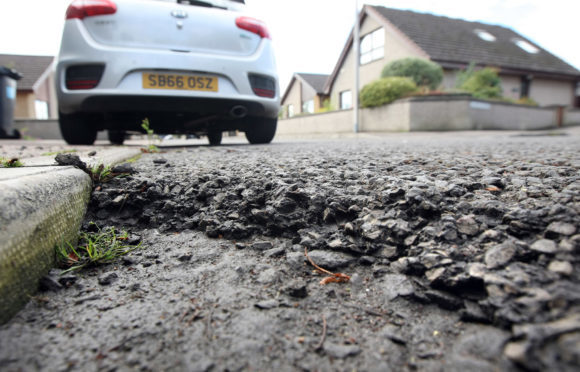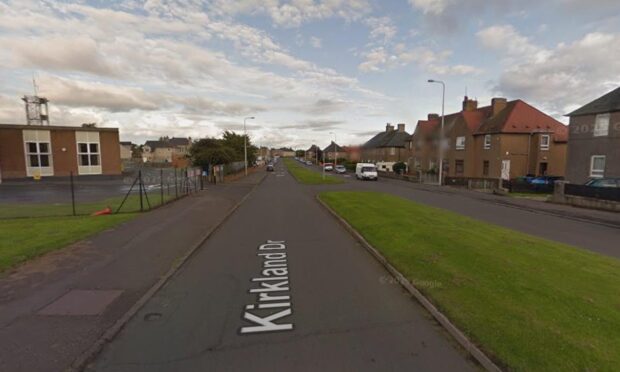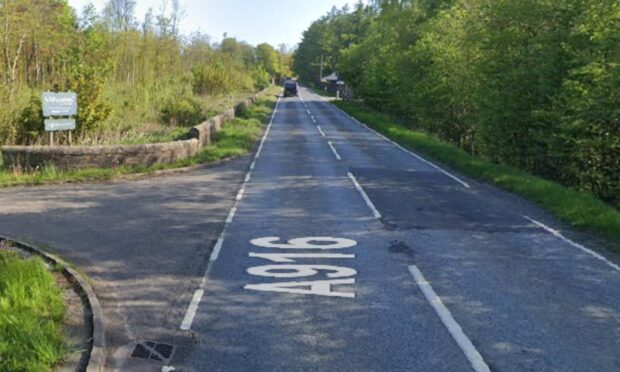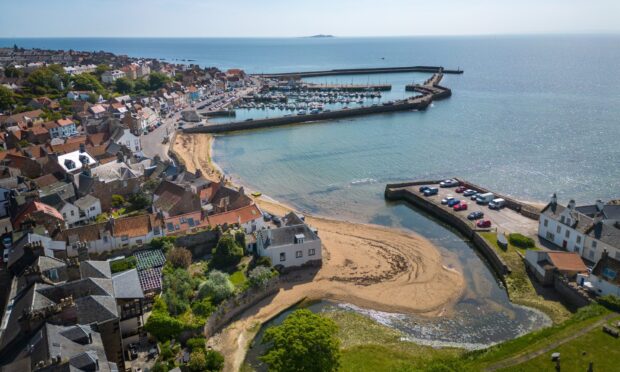The cavernous potholes of Fife have a combined depth of more than a kilometre, according to new figures.
If added together, the region’s potholes would amount to the height of 779 cars or almost seven times the depth of the English Channel.
The research from comparison website Confused.com has prompted calls for the issue to be tackled as a priority, amid claims Fifers are being forced to drive on some of Scotland’s worst roads.
Confused.com submitted Freedom of Information requests to every council in the UK, asking about the number of potholes or road defects on their records – and the minimum depth required for a defect to be considered a pothole.
Fife Council insisted it had a rigorous inspection and repair regime but the figures indicate the region has by far the worst potholes in Courier Country – and a depth way above the Scottish average of 334m.
Potholes in Perth and Kinross have a combined depth of 364m – the equivalent of 243 cars stacked on top of each other – while in Angus they total 222m deep, or the height of 148 cars.
Dundee City Council did not respond to the FOI request.
Conservative MSP Murdo Fraser said the Confused.com report underlined the extent of damage to road surfaces in Fife.
“Potholes are an issue that simply won’t go away and councils across the country need to commit to repairing them as quickly as possible,” he said.
“Of the local authorities reporting data, only road surfaces in Edinburgh were worse than in Fife, which is very disappointing.
“Some councils have taken a gamble on paying compensation claims rather than repairing surfaces and this is not on.”
Only 19 of Scotland’s 32 local authorities provided data. Fife Council claimed the figures were selective and did not fully reflect overall road conditions.
Service manager David Brown said: “We use nationally accepted benchmarking to measure our performance and overall, Fife’s position in terms of road condition has improved in recent years.
“We have a rigorous pothole inspection and repair regime in Fife which means that they can be dealt with quickly to help keep our roads safe for all users.
“This is reflected in our relatively low levels of compensation costs.”










